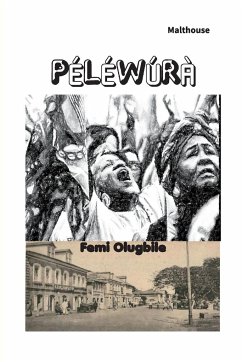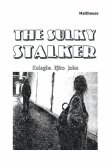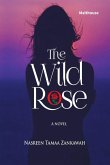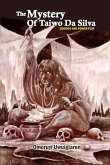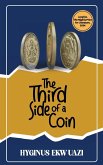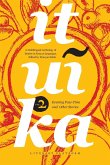Péléwúra is the dramatized story of a true-life character who rose from humble beginnings to become the most powerful woman in Lagos. It is also the story of Lagos of the late nineteenth and early twentieth centuries. The town was a rich potpourri of indigenous people, mostly of Awori descent, and Yoruba returnees from slavery-experience in Brazil and other places, as well as people from other parts of the Northern and Southern Protectorates. Born into this diverse ferment, the unlettered daughter of a fishmonger, Péléwúrà grew into her own through the sheer force of her personality, and her native intelligence. As the politics of the nascent Nigerian nation began to take shape, she positioned herself and her market women's association to play crucial roles. Her friendship with such figures as Governor Bernard Bourdillon, Herbert Macaulay and Nnamdi Azikiwe, and her role in the formation of the first national political party, NCNC, were the stuff of legend. PELEWURA tells the story of how a remarkable woman helped in shaping the history of her town, and her people. This is an engaging literary reconstruction of a historical figure, Alimotu Péléwúrà, 1865-1951, by Femi Olugbile. Steeped in historical awareness, Olugbile's vivid imagination sees a wonderful woman in the mirror and makes her come alive on the page with all her integrity and grandeur. In the context of the political history of Lagos and the participation of other prominent Lagosians, he seamlessly traces her interesting life from her humble beginning in Isale Eko through her many fierce and impactful struggles against the unremitting oppression of the British rule of the Lagos Colony right down to her glorious end. She was the founder of the Lagos Market Women's Association with the solid and strategic support of Herbert Macaulay. She was also a pioneer member of the Nigerian National Democratic Party, NNDP. She was a highly regarded Erelu lyaloja of Lagos and an extraordinary mentor. Abibat Mogaji, who succeeded her, was one of her mentees. Although she did not have her own biological children, Olugbile's defining portrait of her as a lover of other people's children, a people's person, kind-hearted and generous, is very moving and profoundly humanising. This book, which can be read as history or as fiction or as a faction, is by turns direct, passionate, thrilling, thoughtful and lucid. - Kunle Ajibade, Author of Jailed for Life: A Reporter's Prison Notes
Hinweis: Dieser Artikel kann nur an eine deutsche Lieferadresse ausgeliefert werden.
Hinweis: Dieser Artikel kann nur an eine deutsche Lieferadresse ausgeliefert werden.

